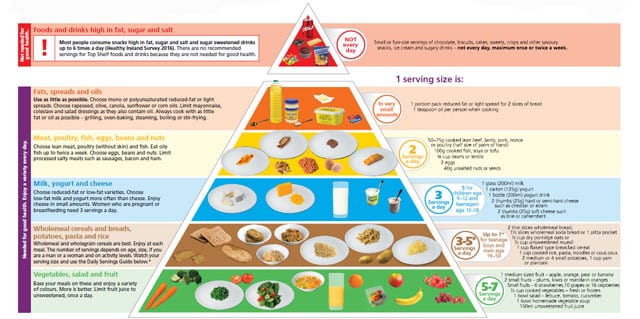
January is here and for some, that means your trousers are tighter, you’re tired and you’ve put on some weight. But not to worry. Everywhere you look you’re being bombarded by magazine covers, online articles and advertisements that are offering the perfect solution: Diets/supplements such as skinny teas that will allow you to ‘lose your Christmas weight gain in ten days’ while ‘detoxing’ your body that will ultimately give you a ‘bikini body and amazing energy levels’. Of course, they all work right?
Unfortunately, the answer is NO.
First things first, your liver, kidney, skin and gut’s function is to detox by removing all toxins and waste. Specific diets and pricey supplements advertised are not required to enhance this process even if your favourite celebrity figure is promising you otherwise. These diets and supplements with such desirable claims may cause you to initially lose a small amount of weight, however, this is likely to be water rather than body fat. Also, such diets/supplements are typically restrictive and unrealistic, causing you to feel deprived, lethargic and inevitably, cause you to ‘fall off the healthy bandwagon’ and gain the weight you’ve lost. In other words, they leave you back to square 1.
So what nutrition-related resolutions can you start in 2020?
It’s best to keep things simple. What we eat is only one of the several factors that are important for our health and how we feel. Others are getting enough sleep and physical activity in addition to looking after our stress levels and mental health.
If you are looking to specifically improve your nutritional intake in 2020, consider the following resolution suggestions:
1. Remove Guilt, Have Patience and Follow a Balanced Diet
It is important to realise that Christmas is once a year, a time of two weeks or so where you may have had more social events seeing friends and family, some of whom you don’t see very often. You possibly had more meals out, indulgent meals in and snacks along with increased alcohol intake. Subsequently, you may have gained some weight, feel sluggish and for some, feel guilt.
Most importantly, food/drinks should not be demonised, what’s done is done, so remove any sense of guilt. It’s likely your social life has reduced and though many surrounding you are maybe starting their ‘new year diet regime’, it is essential to not feed into any form of ‘regime’ that may be considered a quick fix.
If you want to lose weight and regain your energy levels, you need to be patient, consume a healthy balanced diet and eat less high-calorie foods/drinks. The easiest way to do this is by following the Food Pyramid devised by the Department of Health (2016).
 The foods/drinks at the top of the pyramid in addition to alcohol should be consumed in moderation (they are typically calorie-dense), whilst the foods/drinks at the bottom (i.e. fruit and vegetables/whole grains) should be plentiful in your diet.
The foods/drinks at the top of the pyramid in addition to alcohol should be consumed in moderation (they are typically calorie-dense), whilst the foods/drinks at the bottom (i.e. fruit and vegetables/whole grains) should be plentiful in your diet.
If you are interested in losing weight, it is useful to just be aware of the following:
An average man (aged 19-50) who is:
- Inactive requires an estimated 2000 calories.
- Active requires an estimated 2500 calories
Whilst an average woman (aged 19-50) who is:
- Inactive requires an estimated 1800 calories.
- Active requires an estimated 2000 calories.
3,500 calories are equivalent to approximately one pound of fat so to lose 1 pound per week, you require a calorie deficit of 500 calories per day or a 3500-calorie deficit spread throughout your week.
i.e. If you’re an active man wanting to lose weight you need to consume approximately 2000 calories per day or 14,000 calories over 1 week to lose 1 pound per week.
NOTE: The above calorie requirements are estimates, calorie requirements are based on individual factors. You may need to adjust your intake depending on your activity levels, health status, age and height. Making drastic changes to your dietary and fluid intake is not advised. Please seek professional input.
But rather than counting/focusing on calories, aim to follow the portion sizes guided by the Food Pyramid ensuring you are having balanced meals with protein and fibre for satiety as well as completing your preferred choice of exercise.
Also, ensure to include your favourite foods/drinks, even if they are at the top of the pyramid but as previously mentioned, in moderation. Many believe if they have one biscuit, that’s it, they’ve ruined their diet and may as well eat half the packet and start again tomorrow… but believe it or not having 2 biscuits with your cup of coffee every so often is not going to jeopardise your progress, instead you won’t feel deprived and can successfully sustain your healthy eating patterns.
2. Start a Food Diary and Set Realistic Goals
Recording your food/drink intake will provide you with a clear idea of what you’re currently eating. It will also make you more mindful of the types and portions of foods you eat, making it easier for you to understand what you need to add/decrease in your diet when following the Food Pyramid linked above. Tracking your intake also provides a sense of accountability, for example, if there is a temptation in front of you i.e. buns, biscuits etc. you are more likely to not overeat them if you know you will have to record your intake in your diary. As keeping a food diary can be time-consuming, it is not necessary to consistently track your intake so try it for solely two to four weeks to make you more mindful.
With regards to your goals, depending on whether you want to lose weight or improve your energy levels, it is important to set goals that are SMART: specific, measurable, achievable, realistic and timely. For instance, a 5-10% weight loss in 6 months (i.e. 0.5-2 pounds per week) is achievable and sustainable. Such a weight loss goal will also improve your blood pressure, lipid profiles and reduce your risk of mortality.
You can also use goal setting in other aspects of your life such as with your activity levels i.e. aim to run/walk further by a set time period. Small goals/changes can also make a big difference such as taking the stairs, trying a new fruit or vegetable daily, drinking more water or switching from white bread to brown.
3. Plan Your Meals and Choose Healthier Cooking Methods
Pick 1-2 days per week to prepare your meals, even if it’s just your lunches and snacks to start out with. Refrigerate or make several more portions that can be frozen for maybe the following week if you know you are going to be busy on the days you usually cook. This will help you stay on track, save time and money and avoid temptation.
If you dislike spending time in the kitchen, slow cookers are great for making stews, curries and casseroles without needing to spend hours in the kitchen. Baking, steaming, grilling are also considered great cooking methods instead of frying.
Getting your family involved can make cooking more of an enjoyable experience for all. Make sure to include variation to avoid the boredom of meals.
In summary, avoid following/investing in any drastic diets and supplements advertised. Instead, keep your new years’ nutrition resolutions straight forward by making small, realistic and simple changes and following a healthy balanced diet as per the suggestions above. These will allow you to make positive and sustainable changes to your dietary intake.
Wishing you a happy and healthy 2020,
Gillian.


